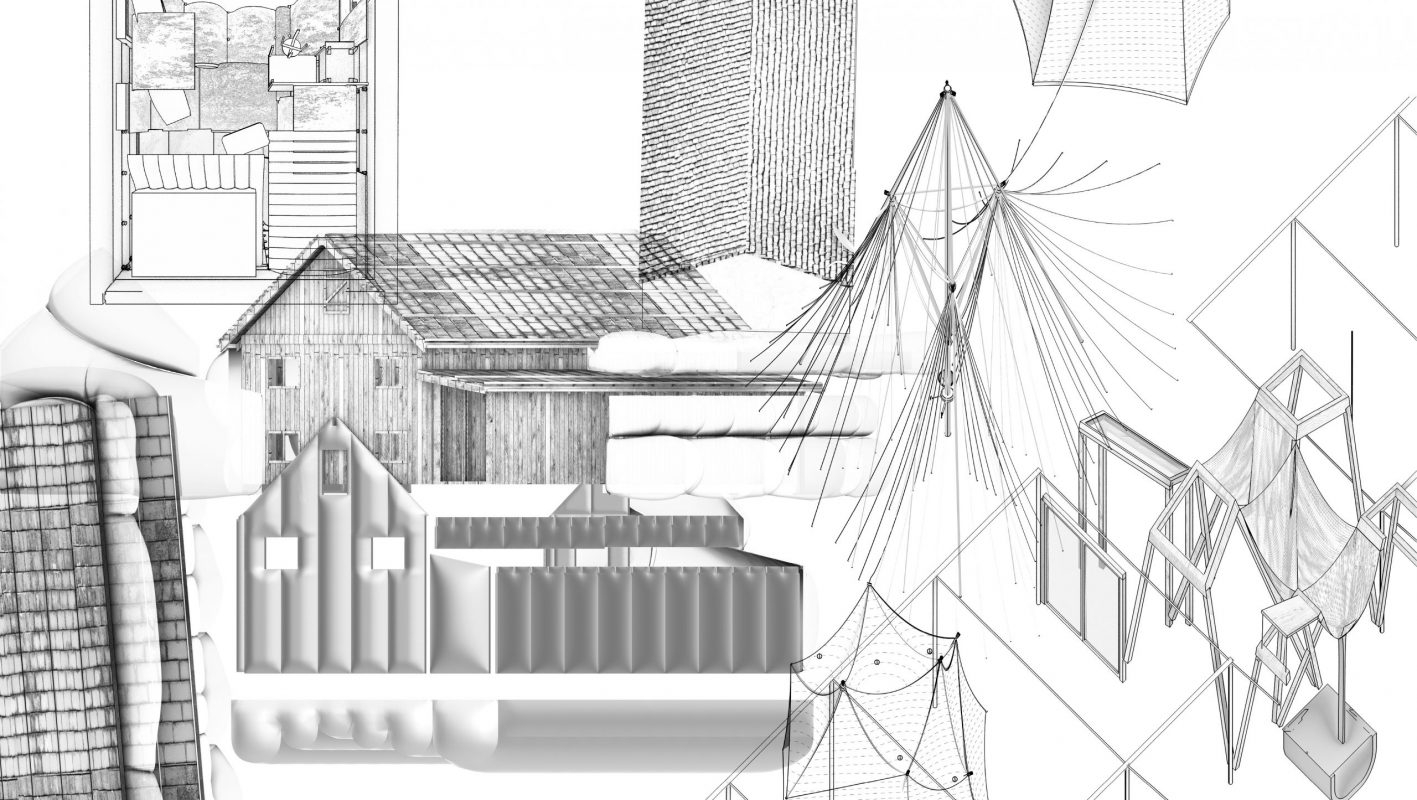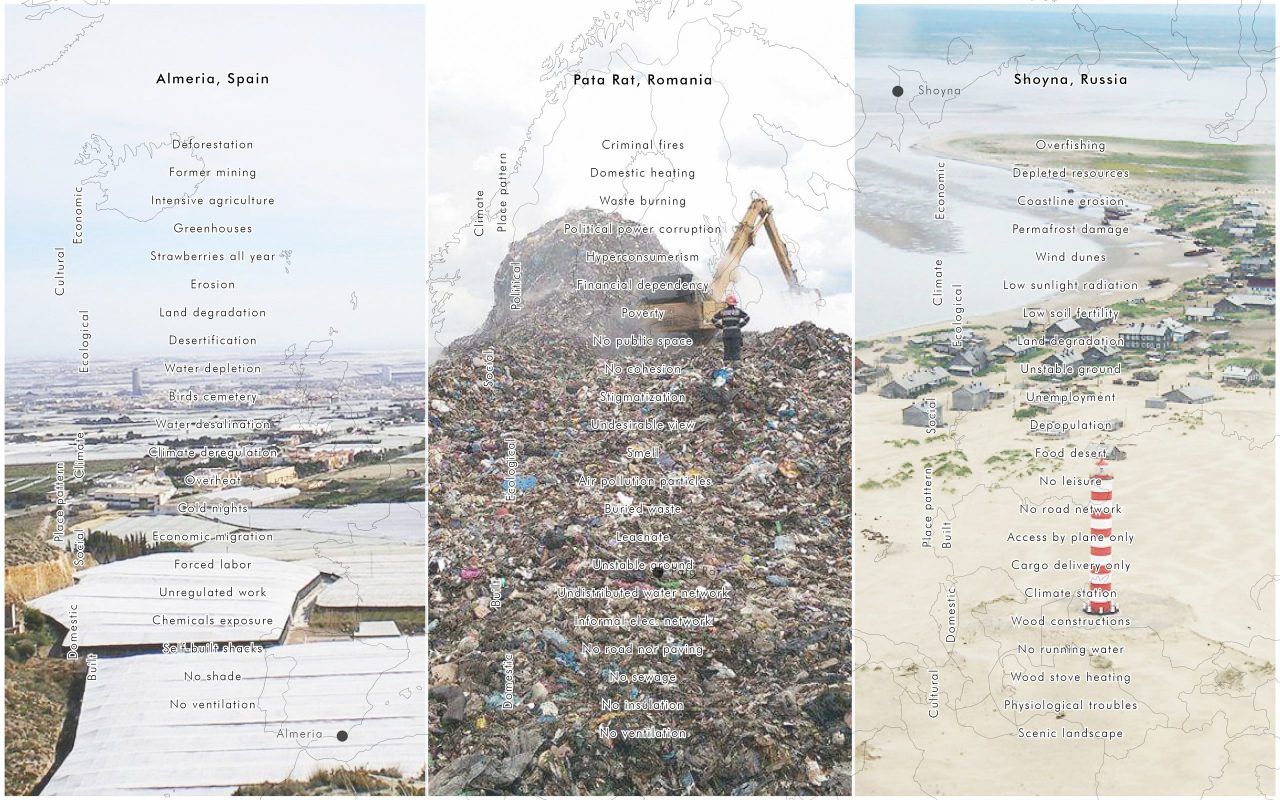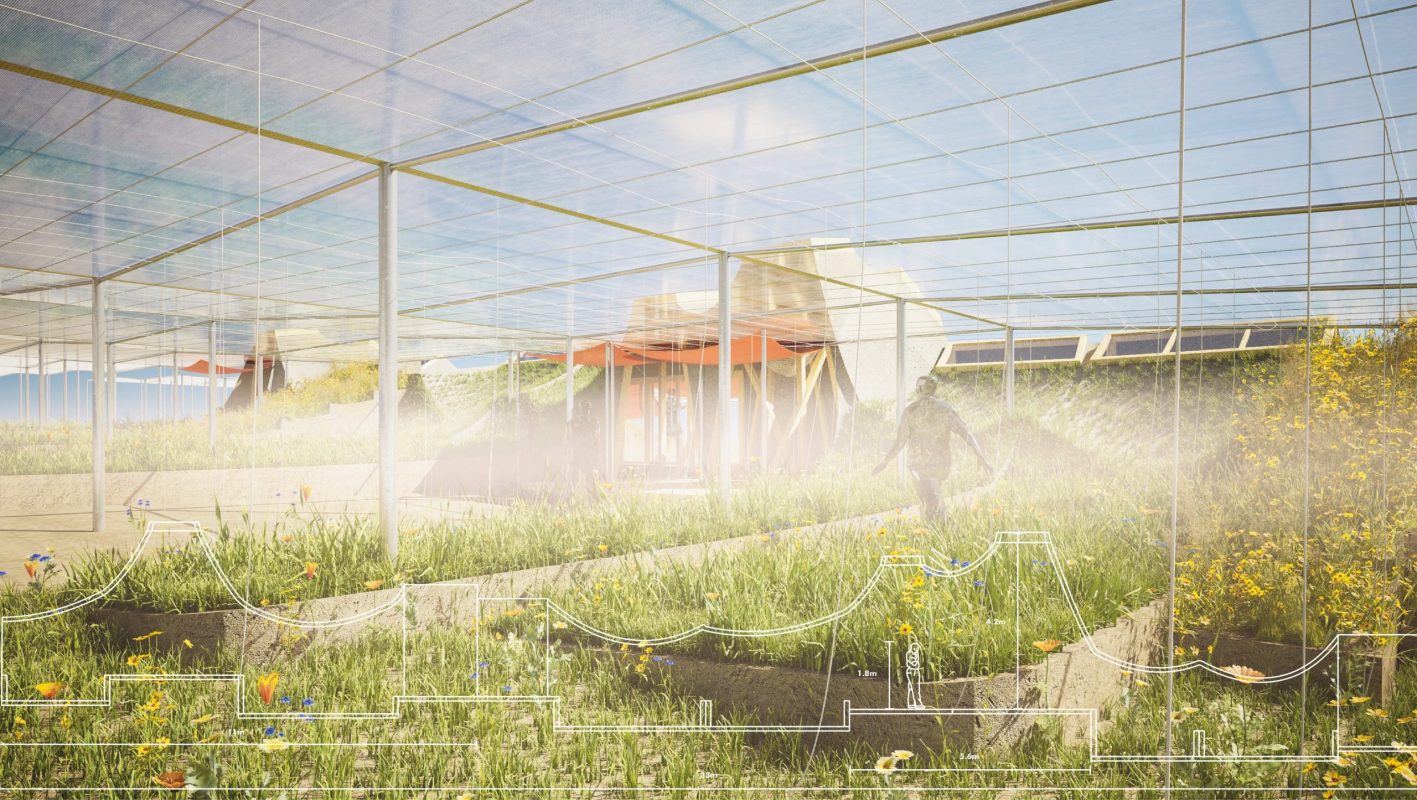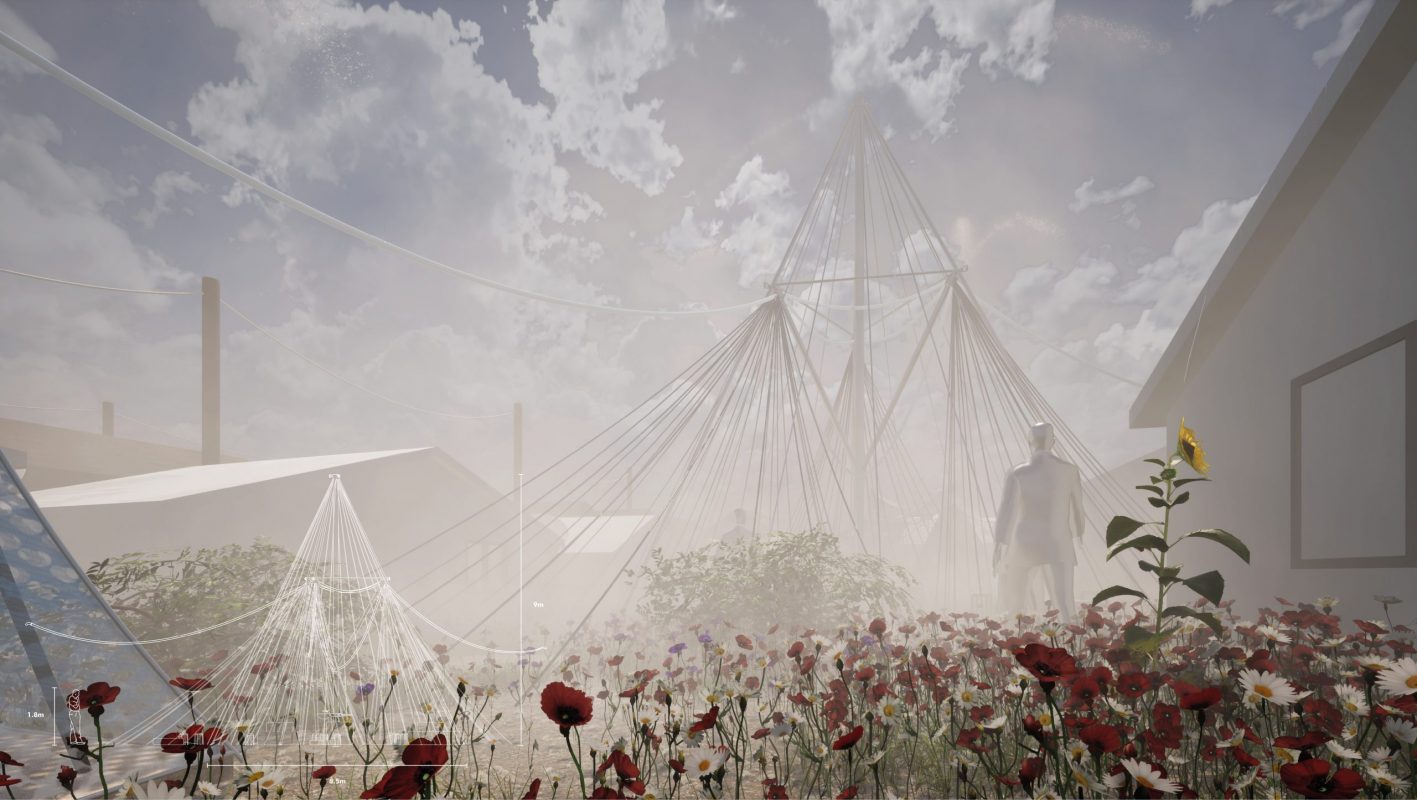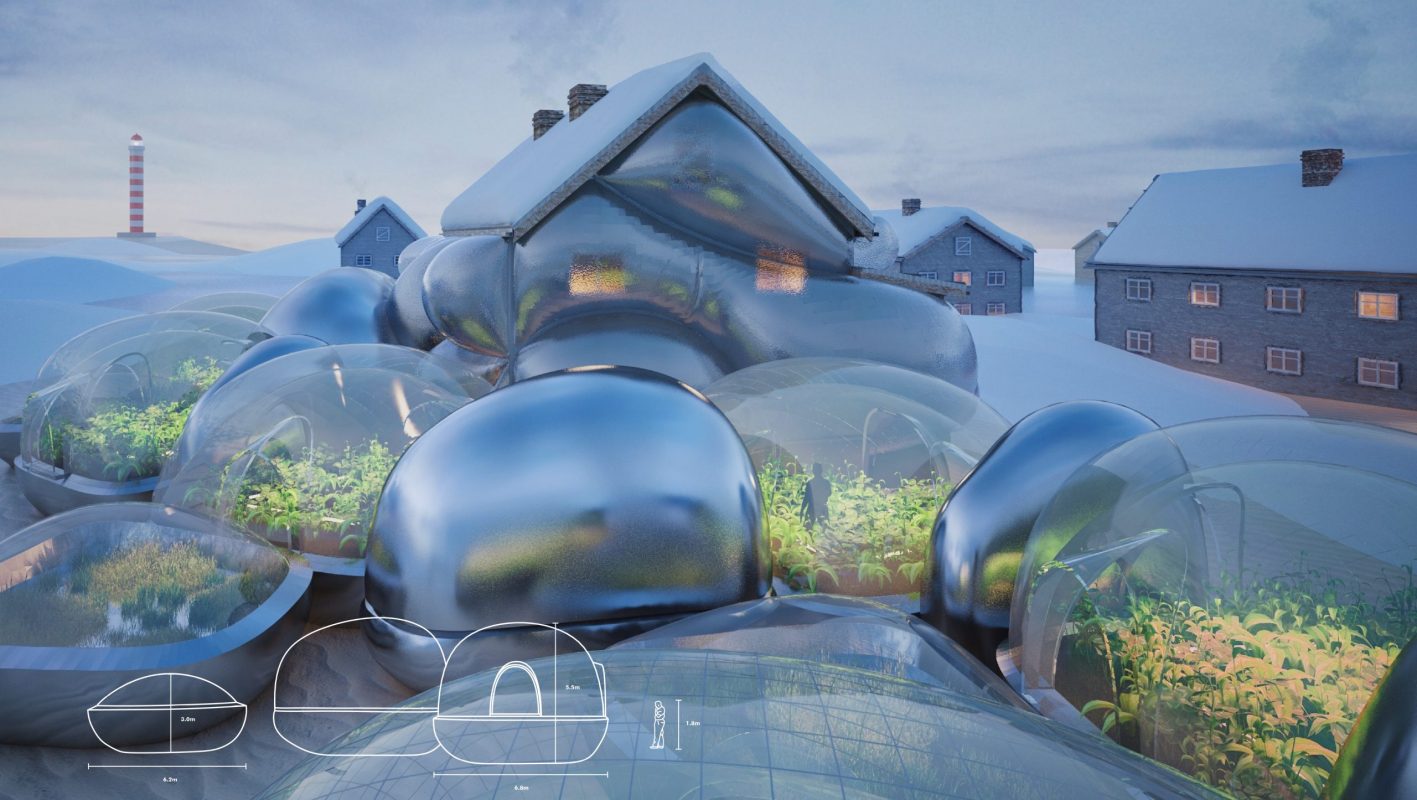Temporary Territories is a set of architectural interventions plugging into precarious built fabrics to investigate the role of architecture in infrastructure making.
It focuses on providing low tech strategies to the marginalised populations living on sites of exclusion and neglect. Stepping away from the assumption that low tech and vernacular share the same technologies and aesthetics, but aiming at developing a set of context-based tools.
As such the project questions the elegant solutions privileged in infrastructure making, and engages with the aesthetics of infrastructural prosthetics and messy solutions to artificially make damaged environments liveable and raise awareness on the conditions of their inhabitants.
Temporary Territories is a negociation where architecture not solely solves problems but instigates an alternative coping mechanism for the locals.
The infrastructure needed for water, heating and food supply – until now denied to the inhabitants – becomes an opportunity to create public spaces for new social interactions and alternative modes of production. The tools developed are designed to be both self standing or part of a larger network, embracing redundancy, a quality commonly found in natural systems but usually rejected in the man-made world.
By providing an answer that is evocative, infrastructural, ecological, artificial and temporary, the architecture does not normalize situations of environmental racism, but instead addresses extreme living conditions without the intention of accepting them.
Three European sites as testing grounds : Almeria in Spain, Pata Rat in Romania and Shoyna in Russia.
They are all characterized by a marginalized group with substandard rights, and kept in poverty (1), human induced environmental damage – on the edge of ecological collapse due to dysfunctional modes of production (2) and nonintervention politics regarding these phenomena leading to a form of permanent impermanence and no access to infrastructure (3).
Inhabiting the edge of the greenhouses in the region of Almeria – where intensive monocultures cover more than 30 000 hectares of land.
The proposal retains the rainwater from sliding off the eroded ground leading to aquifer depletion and shelters the estimated 100 000 informal workers of the agroindustry living in precarious conditions. Rethinking domestic conditions alongside modes of production.
Providing an open air water infrastructure in Pata Rat to fight air pollution caused by criminal landfill fires.
The proposal redistributes the water across the informal settlement from the unique water tap available to the community. It is equipped with sprinklers to recreate the air cleaning effect of rain after a fire occurs and shelters a collective washing space for cleaning and repairing potentially recyclable or sellable items, which is the main source of livehood of the inhabitants.
Elevating the living and food producing spaces in the fishing village of Shoyna, where houses are swallowed by sand dunes.
The project negociates sand dunes migration and inhabitation, by placing the existing and new constructions on pneumatic floating systems creating an artificial ground above the ground for housing and food production. To fight food shortages in this remote location, workshops for processing seasonal goods like fish, game meat and berries are complemented with greenhouses for farming without anchoring the dunes yet expanding further the insulating envelope of the house.

